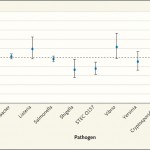Soda companies vs. soda taxes: breathtaking creativity
I keep telling you. You can’t make this stuff up. Try these for food politics–in this case, soda politics–in action.
Beverage Association gives $10 million to Children’s Hospital of Philadelphia (CHOP)
From the Philadelphia Inquirer blog (March 16):
In keeping with a controversial pledge to made last year to City Council as part of an effort to ward off Mayor Nutter’s steep tax on sugar-sweetened beverages, the soft-drink industry will donate $10 million to the Children’s Hospital of Philadelphia to fund research into and prevention of childhood obesity.
The three-year grant is funded by a new organization, the Foundation for a Healthy America, created by the American Beverage Association, the national trade group representing manufacturers and bottlers. The ABA was instrumental in lobbying Philadelphia City Council to reject Nutter’s proposal to tax sugary drinks at 2-cents per ounce as a way to cut consumption and raise money for the general fund.
In a press release Wednesday, CHOP insisted that it will “retain absolute clinical and research independence,” as the source of its funding for the research is likely to come under attack from those wary of the beverage industry’s influence. That includes funding for clinical studies to be submitted to peer-reviewed publications.
Atkins Obesity Center publishes review of effects of soft drinks on obesity
In a delicious irony, the latest review of this topic comes from the Atkins Center at Berkeley. Yes, the Atkins Diet Atkins, the one that promotes high-fat, low-carbohydrates, and has everything to gain from proving that sugars are bad for you.
With that duly noted, set the irony aside. The review was funded by independent agencies and organizations. Let’s take its results at face value.
The reviewers looked at five kinds of evidence: secular trends, mechanisms, observational studies, intervention trials and meta-analyses. All supported the idea that
The currently available evidence is extensive and consistently supports the hypothesis that sweetened beverage intake is a risk factor for the development of obesity and has made a substantive contribution to the obesity epidemic experienced in the USA in recent decades.
Sweetened beverages are an especially promising focus for efforts to prevent and reduce obesity for two reasons: (i) the evidence supporting the association between sweetened beverage intake and excess weight is stronger than for any other single type of food or beverage; and (ii) sweetened beverages provide no nutritional benefit other than energy and water.
Coca-Cola funds North Carolina School of Public Health campaign against Childhood Obesity
Isn’t that nice of them? The apparently unironical slogan of the campaign : “Everything in moderation.”
Robert Wood Johnson Foundation report, “F as in Fat”, features piece by PepsiCo’s CEO
Melanie Warner, writing on bNET, explains that the RWJ Foundation is usually scrupulously independent but that putting Pepsi’s PR piece into its document makes no sense.
A third of the way into the report, up pops a bizarre “personal perspective” from PepsiCo’s (PEP) CEO Indra Nooyi in which she details the many ways her company is working to make America healthier. “Helping consumers by building on our portfolio of wholesome and enjoyable foods is not just good business for PepsiCo -– it’s the right thing to do for people everywhere,” Nooyi chirps in a two-page soliloquy that reads like a press release and touts everything from Pepsi’s pledge to reduce the sodium in its products by 25% by 2015 to its reduced sugar drinks like Trop50 and G2. No other food company is mentioned, just Pepsi.
[This inclusion]…also ties into the ongoing debate about what role the food industry should play in helping Americans slim down. Are food companies trusted partners who are committed to fundamental changes, or is getting people to eat healthier versions of processed food really a whole lot of Titanic deck chairs?
As the research linking soft drinks to obesity gets stronger and stronger, it is no wonder that the Beverage Association is buying off city councils, and soft drink companies are eager to position themselves as helping to solve the problem of childhood obesity, not cause it.
Do these actions remind you of any other industry’s behavior? Cigarette companies, anyone?



